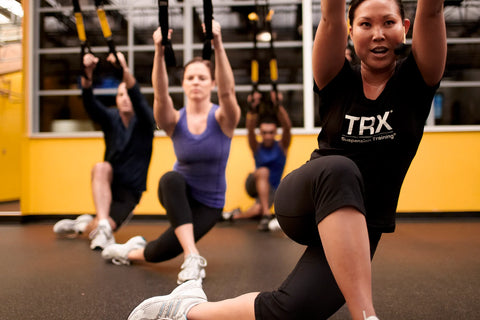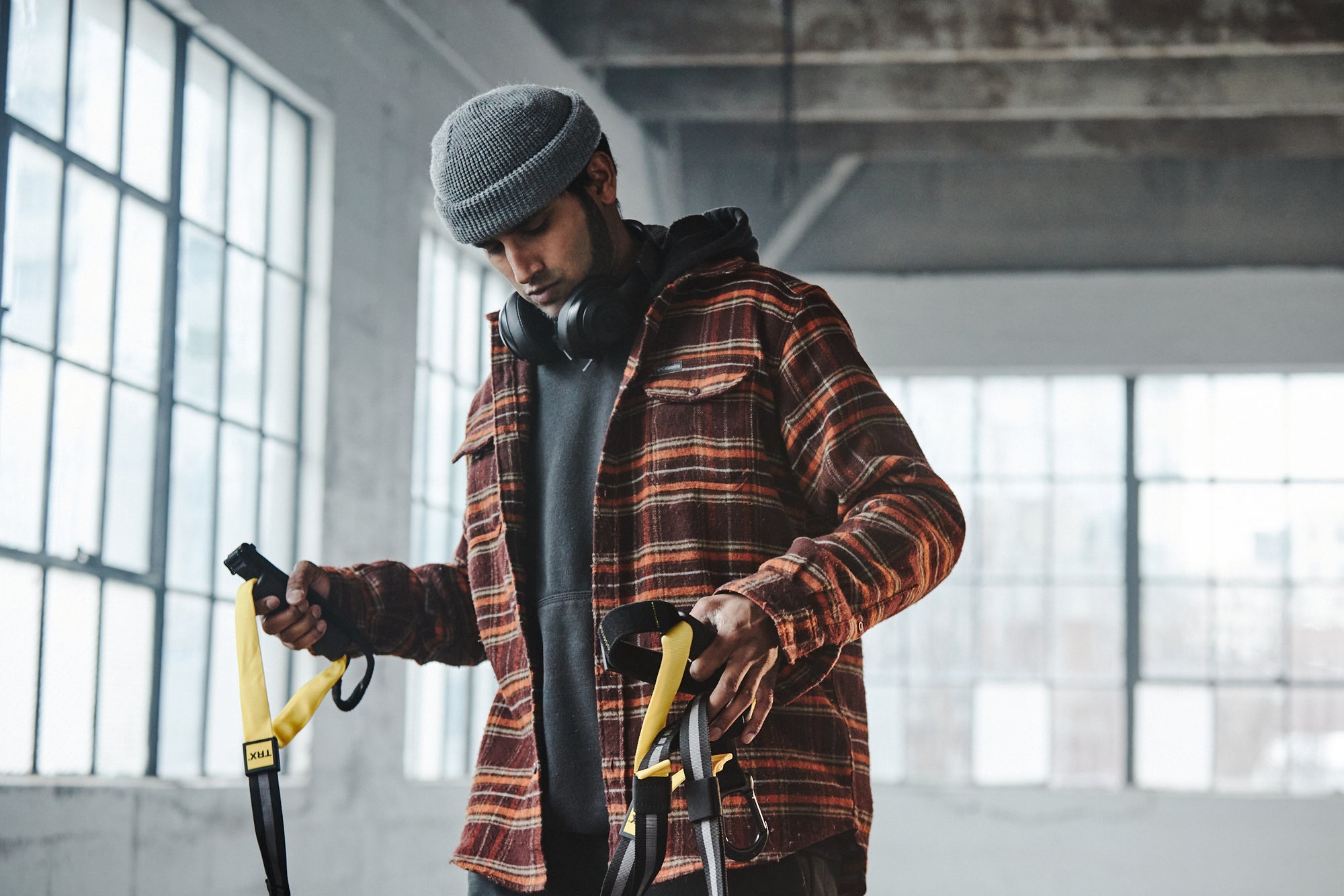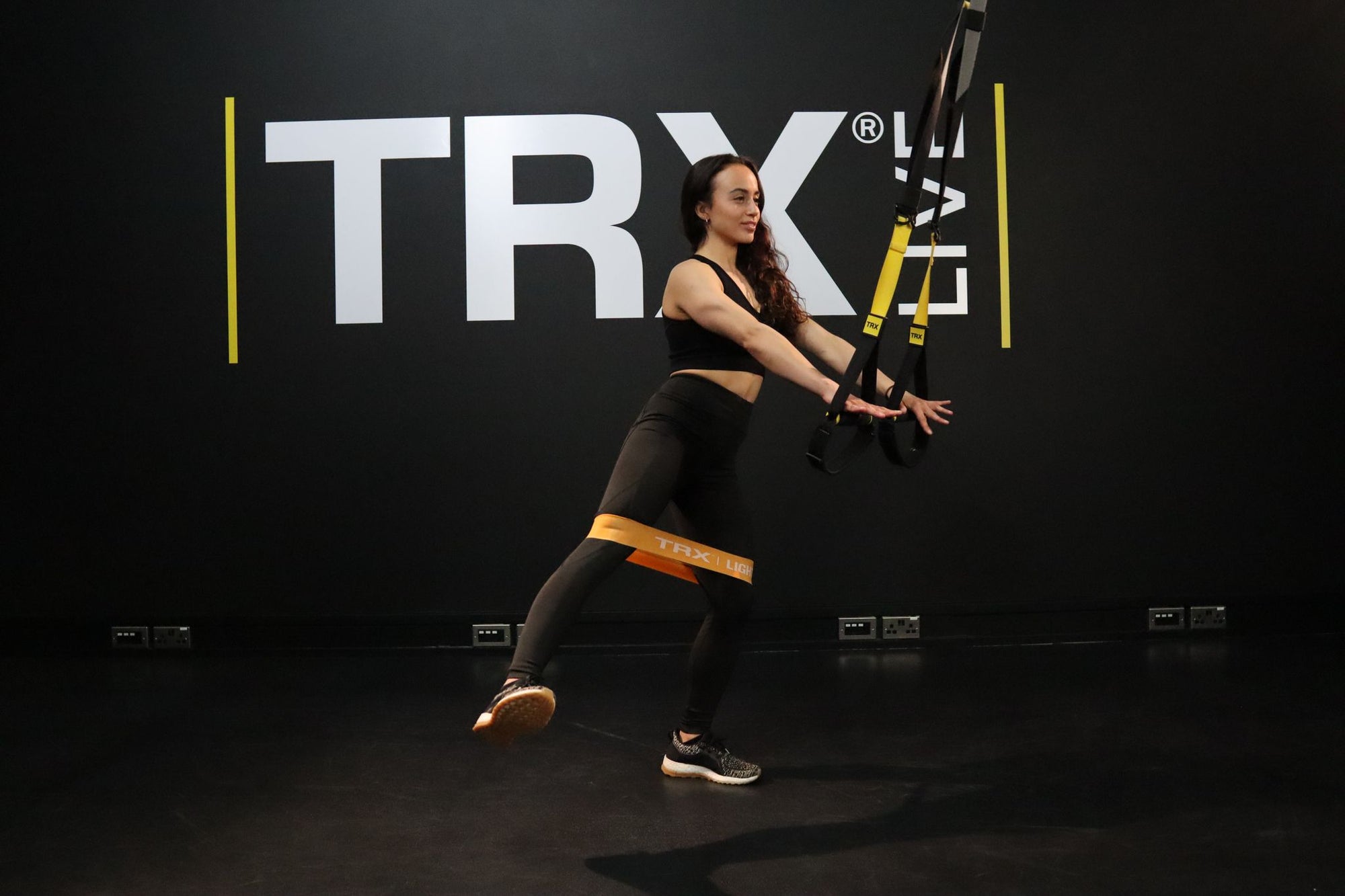Don’t freak out, but your body is not symmetrical...and that’s totally normal! There are tiny differences between the left and right sides of your face, one of your legs is probably a little bit longer than the other, and maybe your shoes have always felt a little more snug on one of your feet. Just as you have physical differences between the two sides of your body, your strength may also vary. While those strength differences could affect your stability in the long run, there are some clever TRX Suspension Trainer moves to help improve balance.

One reason athletes around the world swear by the TRX Suspension Trainer is that it’s an all-core-all-the-time tool. The stabilising loop—that circle at the top of the Suspension Trainer—will slide back and forth if you don’t engage your core, so you have to keep your core tight, no matter what kind of exercise you’re doing. That’s already huge for improving balance, but single-side TRX exercises take it a step further: they also help you identify and correct imbalances.
Most standard TRX exercises—squats, rows, planks, bicep curls, and more—can be modified to isolate a single side of your body. While some people like single-side exercises because they pose a greater challenge, others like them because they reveal which side of your body is stronger.

Let’s use TRX Single Arm Low Rows as an example. Adjust your straps to mid-length, and either thread the handles into single-handle mode, or just grab one handle in your left hand. Set a timer for 30 seconds and count how many reps you can complete before the timer expires. Next, repeat the same 30-second challenge, at the same angle, counting the number of reps you complete on your right side. Were the numbers the same? If you’re left-hand dominant, you probably completed more reps on your left side.
If there was a significant difference in the number of reps, (think three or more), consider adding extra work for your weaker side to create balance between the two sides of your body. You can repeat the same challenge with TRX Single Leg Squats, TRX Single Arm Bicep Curls, TRX Single Leg Planks, and TRX Lunges to help identify strength imbalances through your body. Keep in mind, your dominant hand and dominant leg may be different, so don’t assume that your right leg is stronger just because your right hand is.

If you're feeling ready to go wild with single side exercises, here’s a 20-minute superset workout that targets your upper body, lower body, and core in six-minute segments, with a focus on single-side isolations. We divided this workout into 30-second intervals, so using an interval app like Seconds or Gym Boss—both are available in free versions with in-app purchase options—to keep you on track.
There will be three exercises in each section of this workout. Complete all three exercises on your left side, followed by your right side, and then repeat each side for a second round. You’ll have one minute of recovery between sections.
Upper Body Burnout (x 2)
- TRX Single Arm Bicep Curl Left (30 seconds)
- TRX Single Arm High Row Left (30 seconds)
- TRX Single Arm Power Pull Left (30 seconds)
- TRX Single Arm Bicep Curl Right (30 seconds)
- TRX Single Arm High Row Right (30 seconds)
- TRX Single Arm Power Pull Right (30 seconds)
Lower Body Challenge (x 2)
- TRX Single Leg Lunge Left (30 seconds)
- TRX Crossing-Balance Lunge Left (30 seconds)
- TRX Single-Leg Squat Left (30 seconds)
- TRX Single Leg Lunge Right (30 seconds)
- TRX Crossing-Balance Lunge Right (30 seconds)
- TRX Single-Leg Squat Right (30 seconds)
Complete Core Finale (x 2)
- TRX Side Plank Left (30 seconds)
- TRX Side Plank + Thread the Needle Left (30 seconds)
- TRX Side Plank + Hip Dip Left (30 seconds)
- TRX Side Plank Right (30 seconds)
- TRX Side Plank + Thread the Needle Right (30 seconds)
- TRX Side Plank + Hip Dip Right (30 seconds)




